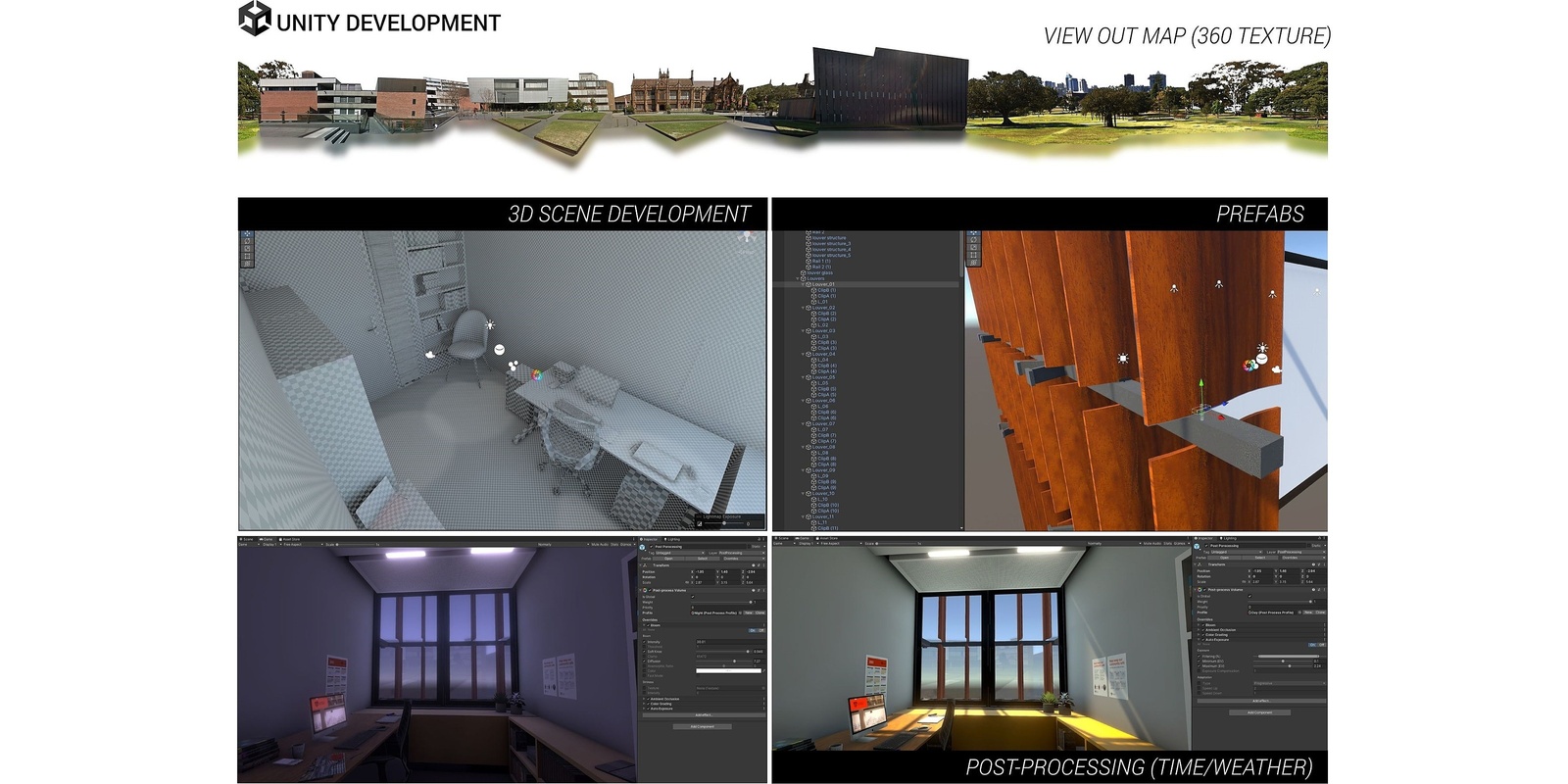VR Pre-Occupancy and Collaborative Decision-Making Enabled by Digital Technologies: F10 façade renovation case study
Event description
Join us for the first event in our Computation and Construction in Architecture (CoCoA) Profile Series.
Digital tools have significantly influenced the design and construction of new objects and buildings, offering a broad range of specialties, including computational modelling for analysis, design, and optimization, as well as advanced manufacturing processes. These emerging digital technologies are gradually transforming the field and revolutionizing the way we approach design and construction. This research aims to investigate the potential benefits of employing digital workflows for the analysis, reconfiguration, and optimization of existing facades. Building upon the case study of the ‘F10 – New Law Building’ at the University of Sydney, the design team, in collaboration with the Sydney Law School and Sydney Infrastructure leveraged multiple digital technologies to analyse the existing facade, evaluate various design options, and identify the most effective solutions. The process involved a quantitative and qualitative analysis and leveraged the use parametric models, multivariable optimization, a user-centric design approach employing Virtual Reality (VR) to assess the impact of potential design solutions and their potential impact on occupants’ well-being. We present the proposed research methodology and implementation of the holistic data-driven design approach and meaningful engagement with simulation data and its communication to a wide range of key stakeholders using VR technologies.
Date: Tuesday October 8
Time: 6:00pm - 8:00pm
USYD Lead: Dr Anastasia Globa
Industry Lead: Alberto Sangiorgio
CPD points are available for this event.
NSCA 2021 Performance Criteria for this event:
PC7 - Understand appropriate processes for clear and consistent communication with clients and relevant stakeholders throughout a project, including obtaining approvals from clients and stakeholders.
PC18 - Be able to apply creative imagination, design precedents, research, emergent knowledge, and critical evaluation in formulating and refining concept design options, including the exploration of three-dimensional form and spatial quality.
PC30 - Be able to explore options for siting a project, including integrating information and analysis of relevant cultural, social and economic factors.
PC34 - Be able to apply principles and methodologies for presenting conceptual design proposals and associated information to clients, stakeholders and communities, including using culturally responsive methods appropriate to different audiences.
This event may be photographed and/or filmed for promotional and documentation purposes.
If you have concerns regarding this, please approach our staff. Your comfort and privacy are important to us.
Tickets for good, not greed Humanitix dedicates 100% of profits from booking fees to charity

